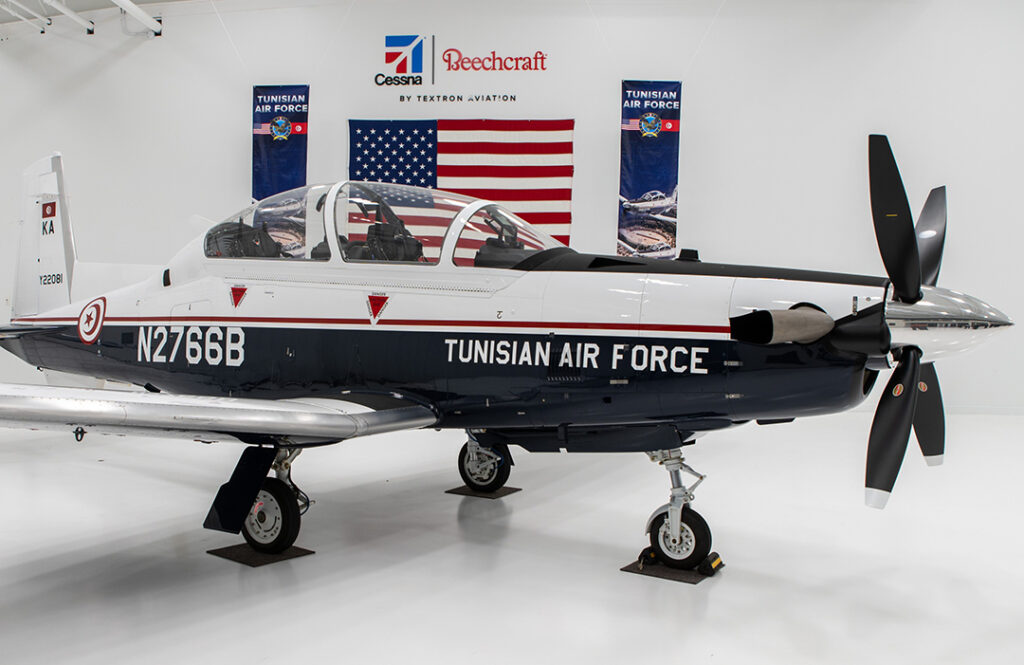The Tunisian Air Force has received the first batch of eight Beechcraft T-6C Texan II trainer airplanes from the United States, according to AFRICOM.
The remaining four are expected to be delivered later in August, said AFRICOM in its quarterly magazine Africa Defense Forum.
Designed and manufactured by Textron Aviation Defense, the T-6C is a single-engine turboprop aircraft with an approximate 10-meter wingspan and an all-digital, pressurized glass cockpit that offers pilots an unobstructed view. Other features include ejection seats, collision-avoidance and ground proximity warning systems, and an on-board oxygen system that provides supplemental oxygen for the pilots.
“Becoming a regional leader in military flight training excellence is one of the milestones on the path to achieving our counterterrorism and border security mission requirements,” Gen. Mohamed Hajjem, the Tunisian Air Force chief of staff, said in a news release.
Tunisian Defense Minister Imed Memich said the new aircraft will provide the air force with advanced training capabilities.
The T-6Cs will be flown by the Tunisian Air Force’s No. 13 Squadron at Sfax Air Base/Sfax-Thyna International Airport. The aircraft are augmented by a ground-based training system, an operational flight trainer and a computer-based training lab. Tunisian pilots began training on the aircraft at Textron Aviation Defense facilities in Wichita, Kansas, in late October 2022, according to defenceWeb.
“As far as what Tunisia might use a better-trained pilot for, it would most likely be about interdiction of smuggling, though there’s a low but existent risk of needing air power to disrupt terror bases that might emerge in neighboring Libya,” Ryan Bohl, a Stratfor Middle East and North Africa Analyst at Rane, a global risk intelligence company, told Breaking Defense.
The T-6C aircraft will replace Tunisia’s aging L-59T Super Albatross advanced trainers. The U.S. contract includes in-country field service and logistics support, program management support, interim contractor support for the first year, training for pilots and maintenance personnel, spare engines, spare parts, and aircraft support equipment, according to Breaking Defense.
Militants have attacked periodically in Tunis, the capital city, but most terrorist operations are in the central-western highlands near the Algerian border, according to Crisis24.
“There is high security at the country’s southern border due to cross-border smuggling, terrorist activities and threats from Libya,” AFRICOM said.
